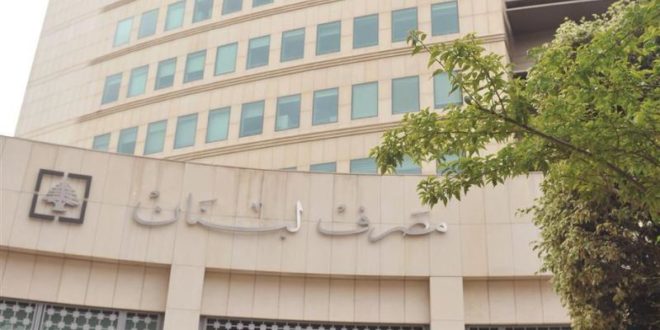Banks are reporting a huge excess in cash in Lebanese pounds resulting from a swap operation engineered by the Central Bank earlier this year. “The Central Bank purchased around LL10 trillion [$6.6 billion] of Treasury bills and CDs held by commercial banks and paid them in advance the return on these bonds with a premium before their maturity as part of the swap operations,” one banker announced.
He added that banks made enormous profits from this swap but ended up with massive amounts of cash in Lebanese pounds.
Central Bank Gov. Riad Salameh assured bankers during their monthly meeting that he would seek a solution to the excess cash in Lebanese pounds soon, the source said.
Among the options Salameh may resort to is to issue new certificates of deposit with long-term maturity that carry 7 to 9 percent interest.
This would absorb the excess Lebanese pounds held by the banks.
The banker predicted that profits of the banking sector could fall by 10 to 15 percent in the domestic market as a result of the excess cash in Lebanese pounds.
The Central Bank requested the commercial banks last month to use the surplus of funds, which they generated from the operations of selling local-currency Treasury bonds from their portfolio and buying eurobonds simultaneously, as provisions in Lebanese pounds to be included in their Tier 2 capital.
According to a Central Bank circular, the provisions will prepare banks to meet the IFRS 9 financial reporting requirements that will come into force in January 2018. It added that in case the banks’ generated funds from such operations exceed the amount required to meet the IFRS 9 standards, then they can release the excess from provisions upon the Central Bank’s approval.
To encourage the banks to subscribe in eurobonds, the Central Bank offered to buy all or most of the Treasury bills held by them and pay them the return on these bonds before their maturity.
This swap operations have allowed the Central Bank to beef up its foreign-currency reserves to more than $41 billion.
“They [banks] don’t know what to do with excess cash in Lebanese currency. They can’t lend this money under these circumstances and they definitely cannot afford to pay high interest on deposits,” the banker explained.
He and other bankers warned that the banks may be compelled to reduce the interest rates on Lebanese pound deposits and this could prompt many depositors to convert their local currency deposits to U.S. dollars.
The average interest on Lebanese pound deposits is around 7 percent compared to 4.5 to 5 percent on dollar deposits. At present, about 65 percent of the deposits in Lebanese banks are in U.S. dollars and the rest in local currency. Many investors have been lured by the high yield on the Lebanese pound and T-bills.
But with the possibility of reducing the interest rate on Lebanese pound deposits, the prospects of converting to dollar deposits may become very high. “Some depositors may think that it is safer to convert to dollar deposits if the interest margin with the Lebanese pound deposit narrows down close to the U.S. currency,” the banker said.
“If we [banks] can’t find a way to invest this huge [amount of] cash soon then this would affect the profitability of the Lebanese banks until a solution is found. But I am confident that Salameh will find a solution,” the source said.
 Lebanese Ministry of Information
Lebanese Ministry of Information



